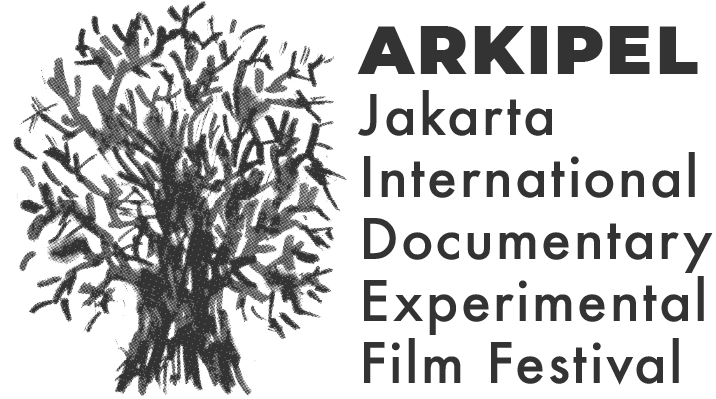Yang Terucap dan Terangkai Tanpa Perlu Kata
Kamis, 24 Agustus 2017 pukul 16.00, seharusnya saya menonton salah satu program kuratorial ARKIPEL 2017 di Kineforum. Seharusnya, iya. Namun, untungnya saya diingatkan oleh rekan-rekan sesama volunteer saya bahwa ada perubahan tempat diadakannya program. Program Kuratorial 3: “Kaum Kucil”, yang seharusnya saya tonton hari itu, bertukar tempat dengan Kompetisi Internasional 5: “Filem dan Representasi Kaum Minor”. Pemindahan ini berkaitan dengan hadirnya Ben Rivers, sutradara dari filem yang akan diputar pada program hasil kurasi Afrian Purnama.
Saya pun langsung bergegas menuju Goethe Institut meskipun waktu masih menunjukkan pukul 14.30, satu setengah jam sebelum program dimulai. Ternyata, program Kompetisi Internasional 3: “Batas Akar” masih berlangsung dan baru akan memasuki sesi diskusi. Paling tidak, hibur saya kepada diri sendiri, saya masih punya waktu untuk bersantai dan bercakap-cakap dengan rekan-rekan sesama volunteer ARKIPEL 2017 yang sedang bertugas di GoetheHaus setelah tiga hari belakangan saya selalu berada di Kineforum.

Afrian Purnama (kanan, kurator Program bertajuk “Kaum Kucil”) menemani Ben Rivers (kiri, sutradara Two Years At Sea), sesaat sebelum pemutaran dimulai.
Obrolan dengan gurauan yang terselip di antaranya bersama dengan rekan-rekan volunteer ternyata membuat saya lupa waktu dan tidak menyadari kalau Ben Rivers sudah tiba, bersama dengan Afrian Purnama tentunya. Tak lama kemudian, gong tanda dipersilakannya penonton untuk masuk ke dalam GoetheHaus dipukul. Saya pun duduk di kursi yang paling atas di GoetheHaus dan dari kursi yang saya tempati, saya dapat melihat Zbyněk Baladrán, Andrés Denegri, Hsu Fang-Tze, Hafiz Rancajale, dan Jean-Marie Teno (para Juri ARKIPEL Penal Colony) dan para penonton lainnya yang sudah menempati kursi masing-masing.
Kritikus dan kurator filem yang merupakan anggota Forum Lenteng sekaligus penulis utama di Jurnal Footage, Afrian Purnama, membuka dan menyapa penonton program kuratorialnya pada Kamis sore tanggal 24 Agustus 2017 itu. Afrian menggunakan dua bahasa pengantar untuk menjelaskan sedikit mengenai filem yang akan ditonton pada hari itu dan memberi sang sutradara kesempatan untuk berbicara di hadapan ke-35 penonton. “Saya tidak suka berbicara terlalu banyak di awal. Akan ada sesi diskusi setelah filem ini. Cobalah mengikuti hidupnya, hubungannya dengan sekitar. Selamat menonton,“ ujar Ben Rivers, menandakan filem akan dimulai.
Filem yang akan ditonton hari itu berjudul Two Years at Sea (2012). Sebuah filem berdurasi 88 menit tanpa dialog maupun kata yang terucap dari bibir si tokoh utama, seorang laki-laki baya yang hidup sendirian di sebuah hutan. Hanya sesekali ia bergumam, bersiul pada lagu Over the Rainbow saat mandi dan lagu-lagu yang diputar dari vinyl yang menggema di sekitar rumahnya melalui speaker.
Tidak ada perkenalan siapa laki-laki ini, tidak ada pula penjelasan akan apa yang ia lakukan, atau lautan mana yang merujuk pada judul filem Two Years at Sea. Apakah mungkin ia sedang mengisolasi dirinya sendiri? Sesekali pula ada foto-foto yang tertumpuk di atas meja, entah siapa mereka dan apa hubungannya dengan tokoh. Semua hal yang saya lihat mulai dari awal filem berjalan hanya meninggalkan tanda tanya yang saya tunggu jawabannya di sesi diskusi.
Memasuki pertengahan filem, rasanya saya mulai mengerti. Mungkin, pikir saya, inilah kekuatan bahasa sinema. Absennya narasi ternyata mampu digantikan oleh benda-benda di sekeliling tokoh utama, yang merangkai sendiri sebuah cerita laki-laki baya itu. Keseharian yang difilemkan oleh Ben Rivers seakan mampu mengajak kita untuk turut serta menjadi tokoh lain.
Sebuah nama Jake Williams kemudian baru ditampilkan di akhir filem, mengindikasikan kalau dialah yang kita ikuti kesehariannya. Lampu GoetheHaus yang redup mulai dinyalakan kembali, disusul tak lama oleh tepukan tangan para penonton yang hadir. Afrian kemudian membuka sesi diskusi.














Afrian Purnama memberikan penjelasan tentang kuratorial “Kaum Kucil”.
Diskusi berlangsung dengan cukup intens bersama dengan para penanya, termasuk Afrian Purnama kepada Ben Rivers. “Mungkin ini sudah sering saya tanyakan, namun saya pikir semua penonton yang hadir wajib juga mengetahui, mengapa Ben menggunakan seluloid,“ tanyanya dalam Bahasa Inggris sambil berdiri tepat di sebelah Ben Rivers. Dalam pembuatan filem ini, Ben Rivers menggunakan kamera yang sudah tidak lazim lagi dipergunakan dalam pembuatan filem.
Ia berpikir sebentar, sepertinya berusaha merangkai kalimat untuk menjawab. “Ada banyak alasan namun tidak ada alasan yang jelas. Ini (menggunakan 16mm) sangat rumit dan mahal tapi saya menyukai prosesnya. Saya menyukai fakta kalau ia (16 mm) tidak mudah,“ jawabnya.
Sesaat sebelum Afrian menutup sesi diskusi, salah seorang rekan volunteer saya, Raras, turut mengajukan pertanyaan. Raras menanyakan perihal judul filem yang tidak mendeskripsikan isi filemnya. “Tidak ada pertanyaan yang bodoh,” ujar Ben Rivers ketika Raras mengungkapkan mungkin pertanyaan yang ia ajukan adalah pertanyaan yang bodoh, “judul Two Years at Sea mereferensikan kehidupan masa lalu Jake Williams sebelum saat ini” sekaligus menutup program kuratorial sore itu. ***
The Spoken and Conjugated Ones With No Need of Words
Thursday, August 24, 2017 at 16:00, I should be watching one of the curatorial programs of ARKIPEL 2017 in Kineforum. However, fortunately I was reminded by my fellow volunteers that there was a change in the venue of that program. Curatorial Program 3: “The Outsiders”, which I should have watched that day, swapped its venue with the International Competition 5: “Film and the Representation of Minority Group”. This transfer was related to the presence of Ben Rivers, the director of the film in the curatorial program of Afrian Purnama.
I rushed to Goethe Institute immediately even though it was still at 14.30, an hour and a half before the program started. Apparently, the International Competition 3: “The Liminality of Roots” was still occured and about to start its discussion. At least, I amuse myself, I still had time to relax and chat with my fellows volunteers of ARKIPEL 2017 who were on duty at the GoetheHaus, after this past three days I was always at Kineforum.
Talks and jokes tucked in along with fellow volunteers made me forgot the time and didn’t realize that Ben Rivers has arrived, with Afrian Purnama of course.The gong was hit once as a sign that the audiences were allowed to came into the GotheHaus. I sat on the top row of GoetheHaus and from that seat, I could see Zbyněk Baladrán, Andrés Denegri, Hsu Fang-Tze, Hafiz Rancajale, and Jean-Marie Teno (the jurors of ARKIPEL Penal Colony) and other audiences were alreadyon their seats.



Afrian Purnama (right, the curator of “The Outsiders” Program) accompanied Ben Rivers (left, the filmmaker of Two Years At Sea), a moment before the screening started.
Film critic and curator who is also member of Forum Lenteng and main writer of Jurnal Footage, Afrian Purnama, opened and welcomed the audiences of his curatorial program in that Thursday afternoon on August 24, 2017. Afrian used two languages to slightly explain the film that will be watched that day and gave the director a chance to talk to the 35 audiences. “I don’t like to talk too much in the beginning. There will be discussion after the film. Try to follow his life and his relations to the surroundings. Happy watching,“ said Ben Rivers, as a sign for the film to begin.
The film would be watched that day was Two Years at Sea (2012). It was an 88 minutes film with no dialogue or words spoken from the lips of the protagonist; a middle aged man living alone in a forest. Only once he hummed, whistling on the song Over the Rainbow when he took a bath and sounds of songs played from the vinyl reverberating in around his home through the speaker.
There is no introduction on who is this man, also no explanation on what is he doing, or which sea referred on Two Years at Sea as the film’s title. Is he possibly isolating himself? Once, there were also photograph piling on the table, whoever they are and their relationship to the protagonist. Everything I saw started from the beginning of film only left question mark which its answer I wait for in the discussion.
Arriving in the middle of the film, I sensed an understanding. Possibly, I thought, this is the strength of the language of cinema. The absence of narration eventually might be replaced by objects around the protagonist, which conjugate the story about that middle-aged man. The daily lives filmed by Ben Rivers seemed to be able to invite all of us to also be another figure.
A name of Jake Williams was presented in the end of the film, indicating that it was his daily lives we have followed. The dimmed light in GoetheHaus was lit up again, followed later by applause from the audiences. Then Afrian opened the discussion.












Afrian Purnama explained the curatorial standpoint of “The Outsiders”.
The intense discussions with the questioners occured, including from Afrian Purnama to Ben Rivers. “Maybe this has been asked for so many times, but I think the audiences must also know why Ben used celluloid,” he asked in English while standing exactly next to Ben Rivers. In the making of this film, Ben Rivers used a camera which has been unusually used in filmmaking.
He thought for a moment, like trying to string a sentence of answer. “There are many reasons but there is no clear reason. This (using 16mm) is very complicated and expensive but I like the process. I like the fact that it (16 mm) is not easy, “he replied.
Shortly before Afrian closed the discussion, one of my fellow volunteers, Raras, asked a question. She asked about the title that does not describe the content of the film. “There is no stupid question,” Ben Rivers said when Raras revealed that perhaps the question she asked was a stupid one. “The title of Two Years at Sea refers to Jake Williams’s past life before now”, he stated and closed the session of curatorial program that afternoon. ***



































